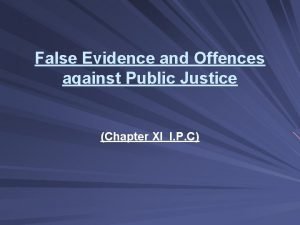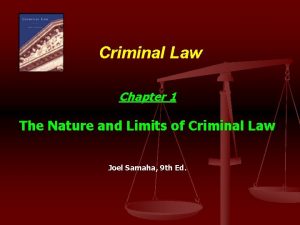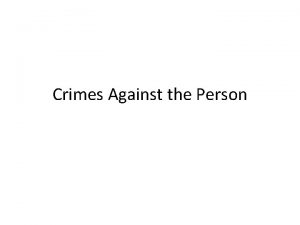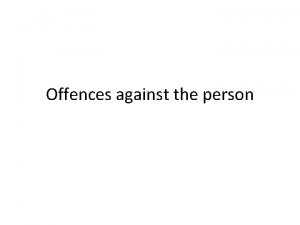Crimes against the person Murder Offences against the







- Slides: 7

Crimes against the person: Murder Offences against the person include homicide, rape, kidnapping and assault. Murder is the main offence within homicide and the most serious.

Homicide Is the killing of a human being by another Unlawful homicide includes: Murder Manslaughter Defensive homicide Culpable driving infanticide

Homicide It can be considered lawful when: was caused by self defence It was caused by an act of war It was required by punishment It was a result in enforcing justice It was caused by accident

Murder is “ when a man of sound memory and of the age of discretion unlawfully kills any reasonable creature in being, and under the King’s peace with malice aforethought, either express or implied by the law, the death taking place within a year and a day”

Murder is the most serious form of homicide Murder takes place when a person intentionally or recklessly kills another person, or inflicts a severe injury on another person who dies as a result Crimes Act 1958

To be found guilty, the prosecution must prove that: The killing was unlawful Malice aforethought existed The accused was responsible for the victim’s death The victim was a human being The accused was of sound mind at the time the murder was committed The accused was over the age of 10

Malice aforethought An intention to kill- the accused must have intended to kill the victim An intention to inflict grievous bodily harm- the accused must have intended to harm a person very seriously, but may not have meant to kill the victim. It is reasonable to assume that if you intend to seriously harm someone, and such recklessness caused the death of a person, then malice aforethought existed Reckless indifference- if a person acted with reckless indifference, not caring whether death or grievous bodily harm could result from their actions, and such recklessness caused the death of a person, then malice aforethought existed. An intention to assault a person who was trying to make a lawful arrest, which resulted in that person’s death













